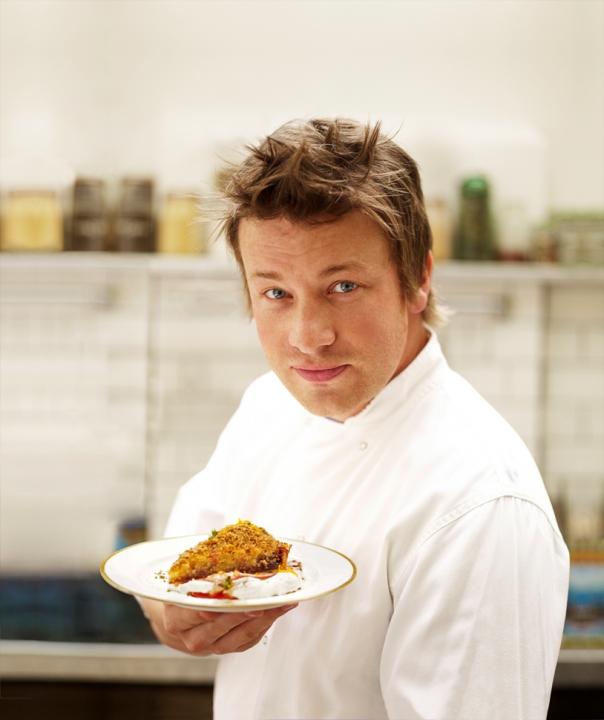Jamie Oliver’s recipe for saving school dinners

Concern that the healthy meals he’s fought to put on the plates of UK schoolchildren may be under threat has prompted Jamie Oliver to draw up an action plan to save them.
Unveiled in the Guardian newspaper today, the campaigning chef has an eight-point manifesto in mind that will reinforce the gains Oliver has helped initiate and close some of the loopholes that are appearing.
In particular he says that the decision not to ring-fence the School Lunch Grant allows financially-strapped head teachers to use it for books rather than helping caterers provide healthy meals prepared from scratch using fresh ingredients.
And he’s also exercised by Education Secretary Michael Gove’s decision that the nutritional standards for school meals do not apply to academies and free schools.
He’s reported in the Guardian as saying: “I’m very worried. I’ve had a couple of very cordial, interesting meetings with the secretary of state for education and although I would love to believe that Mr Gove has school food high on his agenda, I’ve not heard anything so far worth celebrating.”
He points out that obesity and health problems related to being overweight cost the NHS £4 billion at present, with a report in the Lancet suggesting this could rise by a further £1.9bn by the year 2030.
That is why he is proposing his own action plan:
• More money for school food. The Department for Education to replace the School Lunch Grant with a new School Food Premium to reward schools and head teachers who increase school meal take-up and are committed to improving their service because they recognise its importance in improving pupil attainment and behaviour.
• All schools to be covered by the nutritional standards, which should be mandatory for academies and free schools.
• Teach children about food. Cooking classes should be compulsory in all schools, with pupils doing a minimum of 24 hours of practical lessons during every key stage. Ideally, says Oliver this should be “hands on, get your hands dirty cooking”.
• Ensure teachers are properly trained so they can teach cooking if and when it became a curriculum subject.
• Every school should grow some food itself.
• Improve school kitchens and canteens using capital funding. The DfE should recommend that schools use capital funding to create on-site school kitchens, improved dining areas, multi-purpose spaces that would be suitable to teach practical cooking, and food-growing spaces.
• Ofsted inspections should assess the nutritional content of school food, while establishments that increase take-up and lay on inspirational cooking lessons should be praised in their Ofsted report.
• Use the pupil premium to give poorer pupils access to healthy food.
As part of its series on school meals, The Guardian has published Jamie Oliver’s new school meals manifesto, as he reignites his campaign to ensure all schoolchildren have access to healthy and nutritious food. You can access Jamie’s action plan by clicking here.
